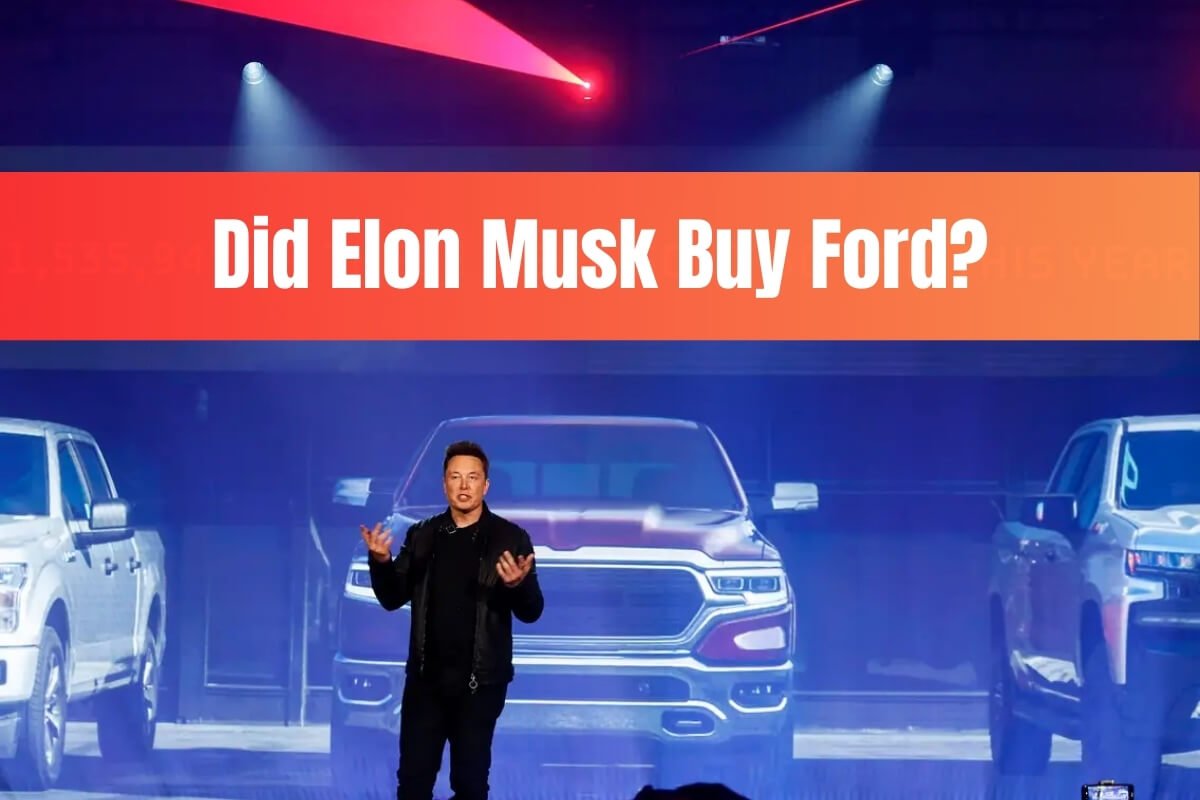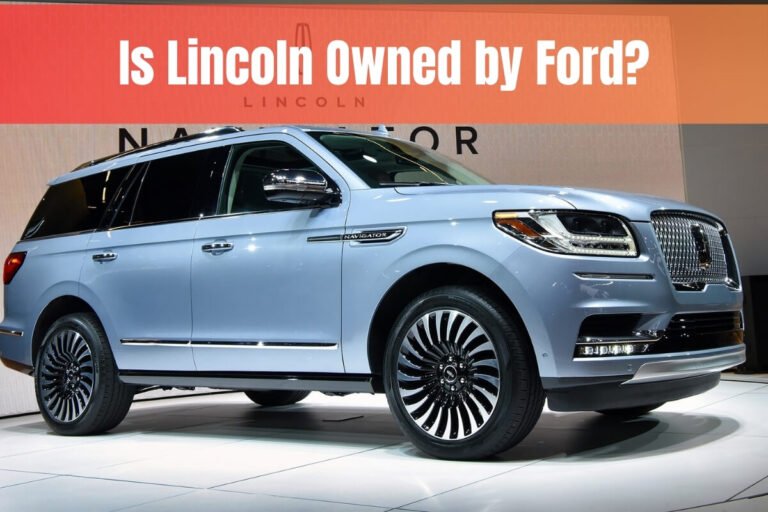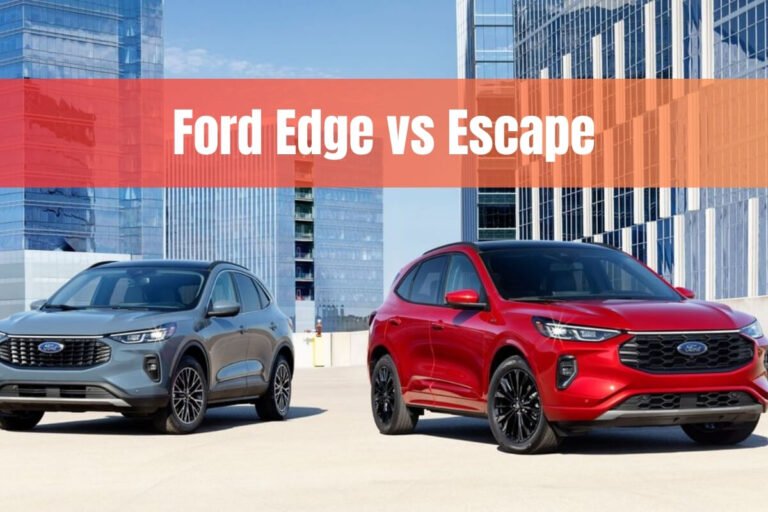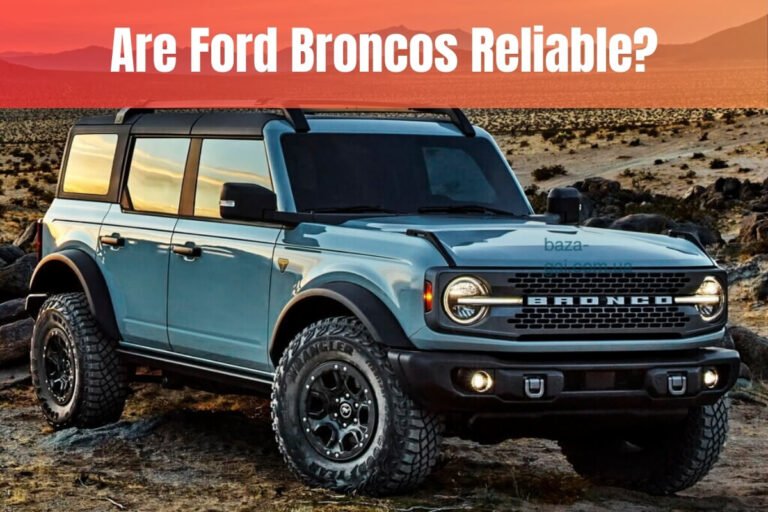Did Elon Musk Buy Ford? Separating Fact from Fiction

In the ever-evolving landscape of the automotive industry, where innovation and disruption are the driving forces, rumors can spread like wildfire. One such rumor that has captured the attention of the public and industry experts alike is whether Elon Musk, the visionary entrepreneur and CEO of Tesla, has acquired the iconic Ford Motor Company.
The idea of Musk, the face of the electric vehicle (EV) revolution, taking over a traditional automotive giant like Ford has sparked widespread speculation and curiosity. While the rumor might seem far-fetched to some, it has gained traction due to Musk’s ambitious nature and his track record of pushing boundaries.
So, did Elon Musk really buy Ford? The short answer is no. There is no credible evidence to support the claim that Musk has acquired or is in the process of acquiring Ford Motor Company.
In this comprehensive blog post, we will delve into the details surrounding this rumor, explore the background of Elon Musk and Ford, examine the potential implications of such an acquisition, and discuss the future of electric vehicles and the role of traditional automakers in this rapidly evolving industry.
What Are the Rumors About Elon Musk Buying Ford?
The rumors about Elon Musk potentially buying Ford Motor Company have been circulating for some time, primarily fueled by online speculation and unverified reports. These rumors have gained momentum due to Musk’s reputation as a disruptive force in the automotive industry and his unwavering commitment to accelerating the transition to sustainable energy solutions.
The sources of these rumors vary, ranging from social media posts and online forums to questionable news articles lacking credible sources. However, it is essential to note that neither Musk nor Ford has officially confirmed or denied these rumors, leaving the public to speculate and draw their own conclusions.
Who Is Elon Musk, and What Companies Does He Own?
Elon Musk is a renowned entrepreneur, engineer, and visionary known for his bold ideas and ambitious projects. He is the co-founder and CEO of Tesla, a pioneering company in the electric vehicle industry, and the founder of SpaceX, a private aerospace manufacturer and space transportation services company.
In addition to Tesla and SpaceX, Musk has been involved in various other ventures, including Neuralink (a neurotechnology company developing brain-computer interfaces), The Boring Company (a tunneling and infrastructure company), and Starlink (a satellite internet constellation operated by SpaceX).
Elon Musk’s Impact on the Automotive Industry
Elon Musk’s impact on the automotive industry cannot be overstated. Through Tesla, he has played a pivotal role in accelerating the adoption of electric vehicles and challenging the dominance of traditional automakers. Tesla’s innovative approach to vehicle design, battery technology, and autonomous driving has disrupted the industry and forced established players to rethink their strategies.
Musk’s unwavering commitment to sustainability and his vision of a future powered by renewable energy have resonated with consumers and investors alike. Tesla’s success has not only demonstrated the viability of electric vehicles but has also inspired other automakers to invest heavily in developing their own electric vehicle lineups.
Ford Motor Company: A Brief Overview
Ford Motor Company is an American multinational automaker founded by Henry Ford in 1903. It is one of the oldest and most iconic automotive companies in the world, with a rich history and a strong presence in various global markets.
Throughout its existence, Ford has been known for producing reliable and affordable vehicles, catering to a wide range of consumer preferences. From the iconic Mustang sports car to the practical and versatile F-Series pickup trucks, Ford has a diverse product lineup that caters to various segments of the automotive market.
In recent years, Ford has recognized the growing demand for electric vehicles and has made significant investments in developing its own EV lineup. The company has introduced models like the Mustang Mach-E and the F-150 Lightning, aiming to compete with Tesla and other established players in the EV market.
Ford’s Shareholders and Ownership Structure
Ford Motor Company is a publicly traded company, with its shares listed on the New York Stock Exchange (NYSE). However, the company’s ownership structure is unique, as the Ford family maintains a significant stake and influence through a dual-class stock structure.
The Ford family holds Class B shares, which give them enhanced voting rights and control over the company’s decision-making processes. This ownership structure has been in place since the company’s inception and has played a crucial role in preserving the company’s legacy and values.
In addition to the Ford family, Ford Motor Company has a diverse group of institutional and individual shareholders. Some of the largest institutional investors in Ford include Vanguard Group, BlackRock, and State Street Corporation.
Did Elon Musk Actually Buy Ford? Examining the Evidence
Despite the persistent rumors, there is no credible evidence to support the claim that Elon Musk has acquired or is in the process of acquiring Ford Motor Company. Both Musk and Ford have remained silent on these rumors, and reputable news outlets have not reported on any such acquisition.
Authoritative fact-checking websites like Snopes have debunked these rumors, citing the lack of official statements or credible sources to corroborate the claims. Moreover, an acquisition of this magnitude would undoubtedly be a major news event, covered extensively by mainstream media outlets.
The Challenges of Such an Acquisition
Even if Elon Musk had the desire to acquire Ford, the process would face significant challenges and hurdles. Ford Motor Company is a massive organization with a market capitalization of billions of dollars, a global workforce, and extensive operations worldwide.
Acquiring a company of this size would require navigating complex regulatory approvals, securing substantial financing, and addressing potential cultural differences between the two organizations. Additionally, such an acquisition could face scrutiny from antitrust authorities and raise concerns about market concentration in the automotive industry.
Partnerships and Collaborations Between Tesla and Ford
While there is no evidence of Elon Musk acquiring Ford, the two companies have explored partnerships and collaborations in certain areas. One notable example is the agreement reached in 2023, which allowed Ford electric vehicle owners to access Tesla’s vast network of Supercharger stations in North America.
This partnership demonstrated the willingness of both companies to work together to promote the adoption of electric vehicles and enhance the overall customer experience. By sharing charging infrastructure, Tesla and Ford aimed to alleviate range anxiety and provide a more convenient charging experience for EV owners.
Such collaborations highlight the potential for traditional automakers and disruptive companies like Tesla to find common ground and work towards a shared goal of accelerating the transition to sustainable transportation.
The Future of Electric Vehicles and the Role of Traditional Automakers
The future of the automotive industry is inextricably linked to the growth and adoption of electric vehicles. As concerns over environmental sustainability and the need for cleaner transportation solutions continue to rise, the demand for EVs is expected to grow exponentially.
Traditional automakers like Ford play a crucial role in this transition. While companies like Tesla have been at the forefront of the EV revolution, established automakers possess the manufacturing capabilities, supply chain networks, and global reach to bring electric vehicles to the masses.
However, to remain competitive in this rapidly evolving market, traditional automakers must embrace innovation, invest in research and development, and potentially explore strategic partnerships or collaborations with disruptive players like Tesla.
The future of the automotive industry may involve a mix of competition and collaboration, where traditional automakers leverage their strengths while learning from the agility and innovation of companies like Tesla. Ultimately, the goal should be to accelerate the transition to sustainable transportation and provide consumers with a diverse range of reliable and affordable electric vehicle options.
Frequently Asked Questions About Elon Musk and Ford
To address some common queries and misconceptions surrounding the topic of Elon Musk and Ford, here are concise answers to frequently asked questions:
Why would Elon Musk want to buy Ford?
While the rumor itself lacks credibility, some speculate that acquiring Ford could potentially give Musk access to the company’s manufacturing capabilities, supply chain networks, and established brand recognition. However, such an acquisition would also come with significant challenges and potential conflicts of interest.
How much would it cost for Musk to acquire Ford?
As of writing, Ford Motor Company has a market capitalization of around $50 billion. Acquiring a company of this size would require substantial financial resources, even for someone with Musk’s wealth.
What would happen to Ford’s existing lineup and workforce if acquired by Musk?
In the hypothetical scenario of Musk acquiring Ford, it is difficult to predict the exact implications for Ford’s existing lineup and workforce. However, it is reasonable to assume that Musk would aim to accelerate Ford’s transition towards electric vehicles and potentially streamline operations to align with his vision and business strategies.
Can Ford compete with Tesla without being acquired?
Yes, Ford can certainly compete with Tesla without being acquired. The company has already made significant investments in developing its own electric vehicle lineup and has the resources and expertise to continue innovating and adapting to the changing market conditions. Competition and innovation are essential drivers of progress in the automotive industry.
While Tesla has been a trailblazer in the electric vehicle space, Ford’s legacy and experience in the automotive industry should not be underestimated. With models like the Mustang Mach-E and the F-150 Lightning, Ford has demonstrated its commitment to embracing electrification and catering to the evolving consumer preferences.
Moreover, Ford’s global presence, established manufacturing capabilities, and strong brand recognition provide it with a solid foundation to compete effectively in the EV market. The company can leverage its existing resources, supply chain networks, and dealership infrastructure to reach a wider customer base and offer a diverse range of electric vehicle options.
It is worth noting that the competition between traditional automakers and disruptive companies like Tesla is not necessarily a zero-sum game. Both entities can coexist and thrive in the rapidly evolving electric vehicle market, as consumer demand for sustainable transportation solutions continues to grow.
Ford’s ability to compete with Tesla without being acquired lies in its willingness to embrace change, invest in research and development, and continuously innovate. By leveraging its strengths while learning from the agility and innovation of companies like Tesla, Ford can carve out a significant share of the electric vehicle market.
Additionally, Ford’s partnerships and collaborations with other industry players, such as the agreement to allow Ford EV owners to access Tesla’s Supercharger network, demonstrate the company’s openness to exploring mutually beneficial arrangements that can enhance the overall customer experience and accelerate the transition to sustainable transportation.
The Importance of Collaboration in the Electric Vehicle Industry
While competition is healthy and drives innovation, collaboration among industry players can also yield significant benefits. The electric vehicle industry is still in its early stages, and the challenges associated with infrastructure development, battery technology advancements, and consumer adoption require a collective effort.
By fostering partnerships and collaborations, companies like Ford and Tesla can pool their resources, knowledge, and expertise to address these challenges more effectively. This could involve sharing charging infrastructure, collaborating on battery research and development, or even exploring joint ventures in specific areas.
Such collaborations not only benefit the companies involved but also contribute to the broader goal of promoting sustainable transportation and reducing the environmental impact of the automotive industry.
The Role of Government Policies and Regulations
Government policies and regulations play a crucial role in shaping the future of the electric vehicle industry. Incentives, tax credits, and emissions regulations can significantly influence consumer demand and automaker strategies.
For instance, government initiatives to promote the adoption of electric vehicles through tax credits and subsidies can make EVs more affordable for consumers, thereby increasing demand and encouraging automakers to invest further in developing their EV lineups.
Additionally, stringent emissions regulations and fuel efficiency standards can compel traditional automakers to accelerate their transition towards electrification to comply with these regulations and avoid penalties.
Therefore, it is essential for companies like Ford to closely monitor and adapt to evolving government policies and regulations, as they can have a profound impact on the competitiveness and profitability of their electric vehicle offerings.
In Conclusion
The rumors surrounding Elon Musk’s alleged acquisition of Ford Motor Company have captured the imagination of the public and industry experts alike. However, as discussed in this comprehensive blog post, there is no credible evidence to support these claims.
While Musk and Tesla have disrupted the automotive industry and accelerated the transition towards electric vehicles, Ford remains a formidable player with a rich history, established manufacturing capabilities, and a commitment to embracing electrification.
The future of the electric vehicle industry is likely to be shaped by a combination of competition and collaboration, where traditional automakers like Ford and disruptive companies like Tesla work together to address shared challenges and promote sustainable transportation solutions.
Ultimately, the success of any automaker in the electric vehicle market will depend on their ability to innovate, adapt to changing consumer preferences, and leverage their strengths while remaining open to strategic partnerships and collaborations that can drive progress and benefit the industry as a whole.






